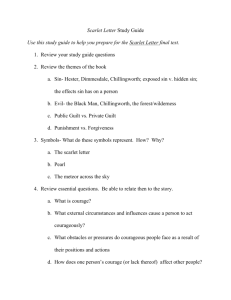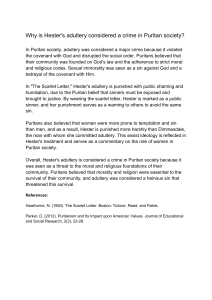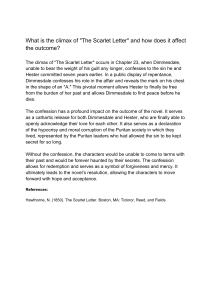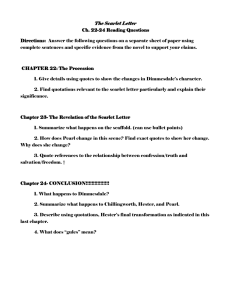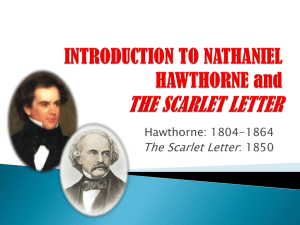What was the Puritan society s view on sin and how does it influence the plot of The Scarlet Letter
advertisement
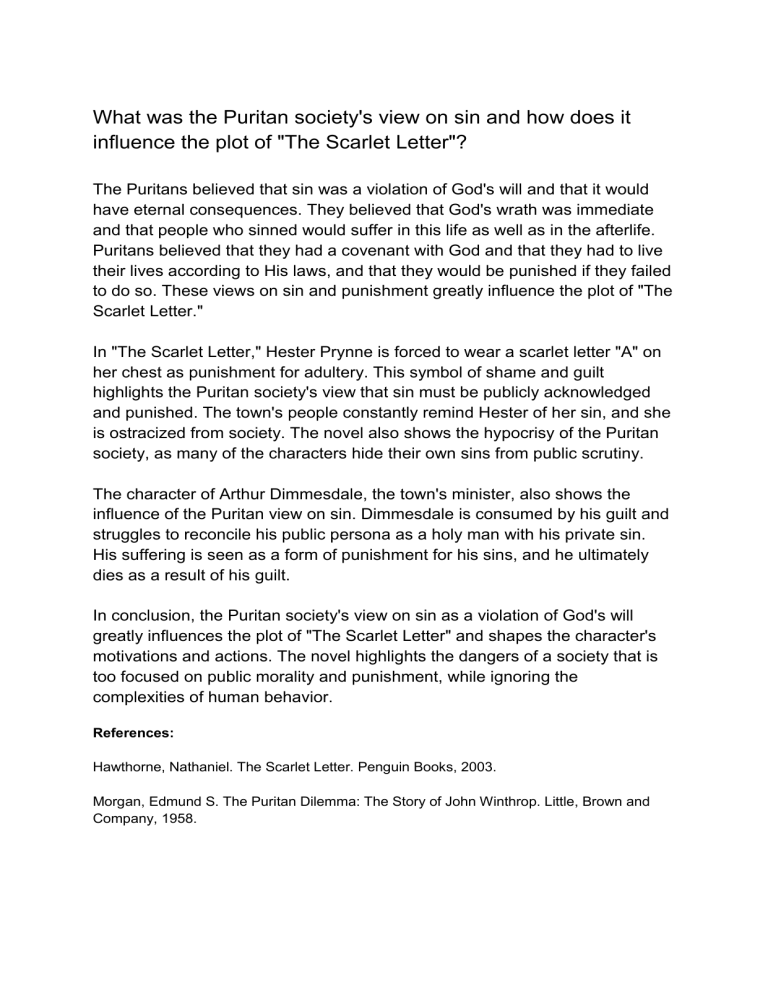
What was the Puritan society's view on sin and how does it influence the plot of "The Scarlet Letter"? The Puritans believed that sin was a violation of God's will and that it would have eternal consequences. They believed that God's wrath was immediate and that people who sinned would suffer in this life as well as in the afterlife. Puritans believed that they had a covenant with God and that they had to live their lives according to His laws, and that they would be punished if they failed to do so. These views on sin and punishment greatly influence the plot of "The Scarlet Letter." In "The Scarlet Letter," Hester Prynne is forced to wear a scarlet letter "A" on her chest as punishment for adultery. This symbol of shame and guilt highlights the Puritan society's view that sin must be publicly acknowledged and punished. The town's people constantly remind Hester of her sin, and she is ostracized from society. The novel also shows the hypocrisy of the Puritan society, as many of the characters hide their own sins from public scrutiny. The character of Arthur Dimmesdale, the town's minister, also shows the influence of the Puritan view on sin. Dimmesdale is consumed by his guilt and struggles to reconcile his public persona as a holy man with his private sin. His suffering is seen as a form of punishment for his sins, and he ultimately dies as a result of his guilt. In conclusion, the Puritan society's view on sin as a violation of God's will greatly influences the plot of "The Scarlet Letter" and shapes the character's motivations and actions. The novel highlights the dangers of a society that is too focused on public morality and punishment, while ignoring the complexities of human behavior. References: Hawthorne, Nathaniel. The Scarlet Letter. Penguin Books, 2003. Morgan, Edmund S. The Puritan Dilemma: The Story of John Winthrop. Little, Brown and Company, 1958.
